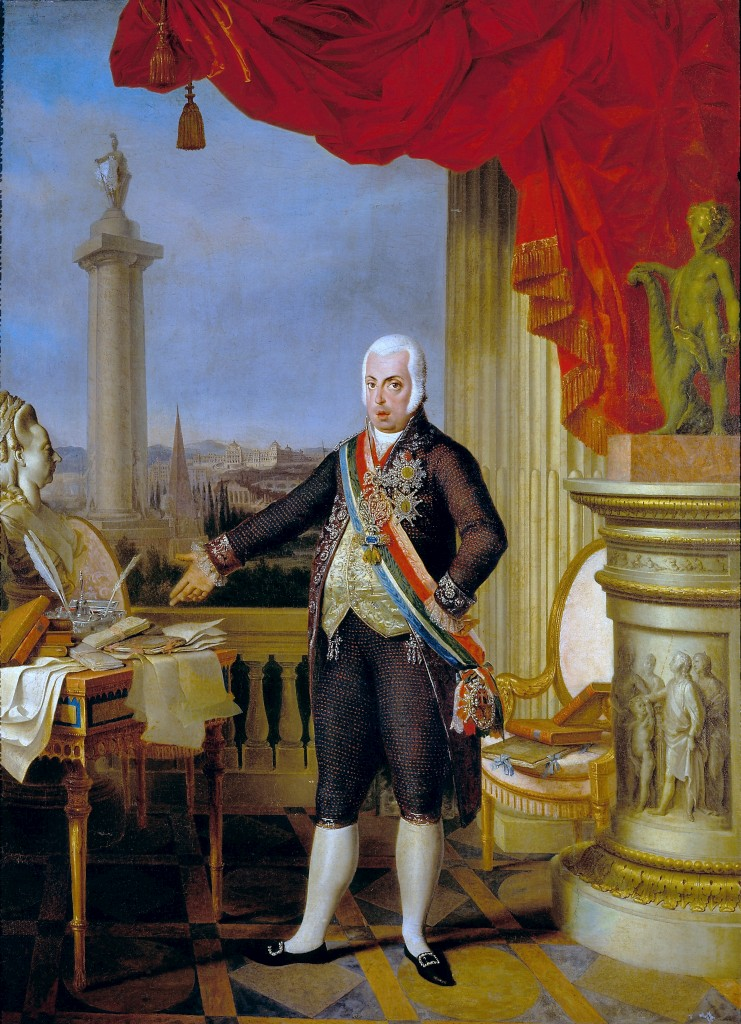
I learned this today. The Portuguese royal court moved to Brazil in 1807 to avoid being deposed by Napoleon.
Spain and Portugal both started exploring the Southern Americas from the late 15th century. Portugal claimed the area that is now Brazil for the King of Portugal in 1500. The Portuguese explorer who claimed Brazil for the Portuguese was Pedro Alvares Cabal. He discovered that nobody could speak the native language and there was no way to communicate. Interestingly, he left two criminal exiles that he had been transporting on his ship behind with the local people so that they could learn the language and serve as interpreters when the Portuguese returned. I think that is a fascinating thing to do and I can’t imagine how terrifying yet wonderful for the criminals it must have been.
After 1500, the Portuguese concentrated more on their colonies in Africa and India and didn’t concern themselves with Brazil. In the late 1520s, they realized that the French were making incursions into South America, so the Portuguese sent more forces back to take control of their colony and keep the French out. From there they decided to turn Brazil into a “proper” colony.
They came upon a problem when they tried to do this. When the Spanish took over the Inca and Aztec empires, they were able to usurp the political and social structures that were already there. Brazil didn’t have any systems like this. The Portuguese tried to colonize Brazil by using a system of captaincies. They divided the country up into 15 captaincies and they were granted to private individuals by royal decree. However, within 10 years, thirteen of these captaincies had failed. The two that did prosper prospered because of sugarcane and slaves.
In 1549, King John III of Portugal decided to reinforce the colony and create a central government. He sent over a large fleet of ships to carry out his orders. They made a capital city in Salvador da Bahia. It wasn’t easy, and the indigenous people fought back, as they should.
In 1565, Rio de Janeiro was founded and by the late 16th century, Brazil was mostly colonized. The Jesuits travelled to this new colony and started to convert the local population. For several hundred years Brazil was a source of sugar, and later gold. It was also a destination for slaves that Portugal shipped from their colonies in Africa.
By the start of the 19th century, Portugal was ruled by King John VI. He was reigning as regent because his mother, Queen Maria I had gone mad after the deaths of her husband and her eldest son. King John VI was regent but he had complete authority in Portugal.
At the start of the 19th century, Napoleon had been waging war across Europe and into Russia off and on for years. Portugal was allied to England, the enemy of France, and disobeyed France’s order not to trade with England. In 1807, Napoleonic forces invaded Portugal, with orders from Napoleon to depose the king and his mother.
King John VI decided to do something that has never been heard of before or since. He decided to move the entire royal court, 7,700km across the Atlantic Ocean to a different continent. He decided to move the court to Rio de Janeiro for safety.
On the 29th November, 1807, King John VI and his court set sail for Brazil under the protection of the British Navy. They landed and were in Rio de Janeiro by March 1808. The Portuguese royal family would end up staying in Brazil until 1821.
During their stay in Brazil, they raised Rio de Janeiro from a small, poor town into a major economic center in the new world. They created many trade deals with Britain and their colonies to reward them for their protection and the whole area grew in wealth. The sugar and coffee trade boomed. However, this was at the expense of slave labor from Africa which was said to be more than half of the total population of Brazil at its peak.
John VI gave many noble titles to his friends from Portugal and even some to people from Britain. He wanted to show that the Europeans were above the indigenous Brazilians and he made them out to be a lower class. As the royal court was located there, the country of Brazil was elevated from the level of colony to that of a nation equal with Portugal.
In 1821, Portugal was in a state of emergency and John was in danger of losing his throne. He made the decision to return and fight for it, a fight that he ultimately won, but his son, Pedro, elected to stay in Brazil. Pedro had been 9 years old when he had moved to Rio de Janeiro and he saw himself more as Brazilian than Portuguese. John VI managed to reclaim his throne and then demanded that Brazil return to its original state as colony. Pedro, his son, refused to do this and led the independence movement. Brazil gained independence from Portugal in 1822 and Pedro was crowned the first emperor of Brazil.
So, John VI of Portugal took his royal court to the colony of Brazil in 1807 to avoid the forces of Napoleon, but, in so doing, he drastically changed the courses of both his own country Portugal and Brazil. And this is what I learned today.
By Domingos Sequeira Public Domain, https://commons.wikimedia.org/w/index.php?curid=51550084
Sources:
https://en.wikipedia.org/wiki/Transfer_of_the_Portuguese_court_to_Brazil
https://en.wikipedia.org/wiki/Colonial_Brazil
https://artsandculture.google.com/story/5AXRumB0octrLg
https://en.wikipedia.org/wiki/Maria_I_of_Portugal
